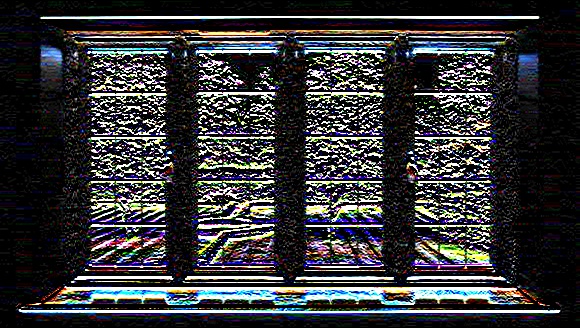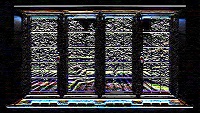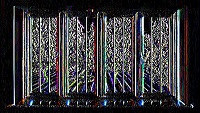
- OpenCV Tutorial
- OpenCV - Home
- OpenCV - Overview
- OpenCV - Environment
- OpenCV - Storing Images
- OpenCV - Reading Images
- OpenCV - Writing an Image
- OpenCV - GUI
- Types of Images
- OpenCV - The IMREAD_XXX Flag
- Reading an Image as Grayscale
- OpenCV - Reading Image as BGR
- Image Conversion
- Colored Images to GrayScale
- OpenCV - Colored Image to Binary
- OpenCV - Grayscale to Binary
- Drawing Functions
- OpenCV - Drawing a Circle
- OpenCV - Drawing a Line
- OpenCV - Drawing a Rectangle
- OpenCV - Drawing an Ellipse
- OpenCV - Drawing Polylines
- OpenCV - Drawing Convex Polylines
- OpenCV - Drawing Arrowed Lines
- OpenCV - Adding Text
- Filtering
- OpenCV - Bilateral Filter
- OpenCV - Box Filter
- OpenCV - SQRBox Filter
- OpenCV - Filter2D
- OpenCV - Dilation
- OpenCV - Erosion
- OpenCV - Morphological Operations
- OpenCV - Image Pyramids
- Sobel Derivatives
- OpenCV - Sobel Operator
- OpenCV - Scharr Operator
- Transformation Operations
- OpenCV - Laplacian Transformation
- OpenCV - Distance Transformation
- Camera and Face Detection
- OpenCV - Using Camera
- OpenCV - Face Detection in a Picture
- Face Detection using Camera
- Geometric Transformations
- OpenCV - Affine Translation
- OpenCV - Rotation
- OpenCV - Scaling
- OpenCV - Color Maps
- Miscellaneous Chapters
- OpenCV - Canny Edge Detection
- OpenCV - Hough Line Transform
- OpenCV - Histogram Equalization
- OpenCV Useful Resources
- OpenCV - Quick Guide
- OpenCV - Useful Resources
- OpenCV - Discussion
OpenCV - Scharr Operator
Scharr is also used to detect the second derivatives of an image in horizontal and vertical directions. You can perform scharr operation on an image using the method scharr(). Following is the syntax of this method −
Scharr(src, dst, ddepth, dx, dy)
This method accepts the following parameters −
src − An object of the class Mat representing the source (input) image.
dst − An object of the class Mat representing the destination (output) image.
ddepth − An integer variable representing the depth of the image (-1)
dx − An integer variable representing the x-derivative. (0 or 1)
dy − An integer variable representing the y-derivative. (0 or 1)
Example
The following program demonstrates how to apply scharr to a given image.
import org.opencv.core.Core;
import org.opencv.core.Mat;
import org.opencv.imgcodecs.Imgcodecs;
import org.opencv.imgproc.Imgproc;
public class ScharrTest {
public static void main( String[] args ) {
// Loading the OpenCV core library
System.loadLibrary( Core.NATIVE_LIBRARY_NAME );
// Reading the Image from the file and storing it in to a Matrix object
String file ="E:/OpenCV/chap16/sobel_input.jpg";
Mat src = Imgcodecs.imread(file);
// Creating an empty matrix to store the result
Mat dst = new Mat();
// Applying Box Filter effect on the Image
Imgproc.Scharr(src, dst, Imgproc.CV_SCHARR, 0, 1);
// Writing the image
Imgcodecs.imwrite("E:/OpenCV/chap16/scharr_output.jpg", dst);
System.out.println("Image processed");
}
}
Assume that following is the input image scharr_input.jpg specified in the above program.

Output
On executing it, you will get the following output −
Image Processed
If you open the specified path you can observe the output image as follows −

More scharr Derivatives
On passing different values to the last to parameters (dx and dy) (among 0 and 1) you will get different outputs −
// Applying scharr on the Image Imgproc.Scharr(src, dst, -1, 1, 1);
Following is a table listing various values for the variables dx and dy of the method scharr() and their respective outputs.
| X-derivative | Y-derivative | Output |
|---|---|---|
| 0 | 1 |  |
| 1 | 0 |  |